Election reignites calls for change at Democratic Party
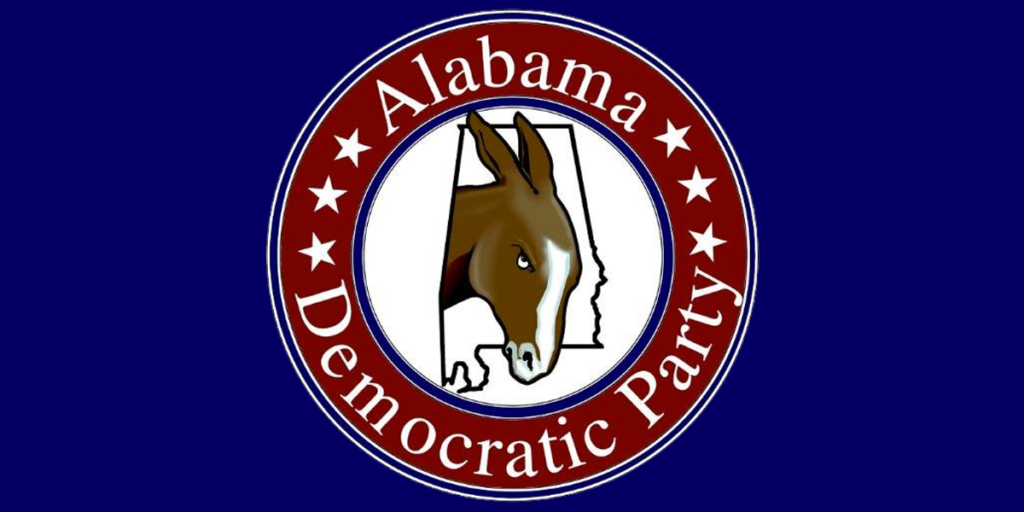
Alabama Democrats’ disappointing performance in Tuesday’s election has reignited calls for changes within the state party, with critics saying candidates were largely left to fend for themselves despite available party funds. Democratic candidates were generally held to about 40 percent of the vote in statewide races, crushing hopes that the party could build on last year’s election of U.S. Sen. Doug Jones, or at least demonstrate themselves as viable with competitive races. The losses rekindled long simmering tensions, with several 2018 candidates calling for new leadership or at least a new approach. “When you have a losing season and a losing season and a losing season, the coach goes,” said former Alabama Chief Justice Sue Bell Cobb, who ran in the Democratic gubernatorial primary. Cobb earlier this year called for the resignations of Alabama Democratic Party Chair Nancy Worley and Vice-Chairman Joe Reed. Mallory Hagan, a former news anchor and Miss America who ran in Alabama’s 3rd Congressional District, used her election night speech to say that Democrats upset over the loss should be “mad at our own” party. Chief Justice candidate Bob Vance stopped short of calling for a change in leadership but he said the party needs a “new approach” and said promises of help never substantially materialized. The Democratic Party, which has been silent for months at a time on social media, has been criticized for not being an active presence to promote the Democratic brand and candidates. The party had about $800,000 combined in its state and federal accounts that it did not exhaust on efforts to back candidates. “That’s the burr under my saddle that the party had the capability and chose not to do anything with it,” Vance said. Worley defended the party’s efforts and spending decisions. She said the party did have more money from qualifying fees this year, but had to hold money back for operating expenses, to pay debt and because of restrictions on how funds can be used. Worley estimated the party spent about $250,000 on efforts for candidates, including fliers that pictured all the statewide candidates, and five days of radio and TV ads urging people to vote Democratic. “Pointing the finger of blame at any single person after an election in just using the scapegoat method,” Worley said There are two separate petitions with the Democratic National Committee that were filed before Tuesday contesting Worley’s August election as chairwoman. One of the petitions alleges that “elections were conducted in a sloppy and haphazard manner” and “deliberately manipulated” in order to favor Worley and others. Worley said that they will file a response to those complaints. Democrats in Alabama had been obliterated from statewide office — until Jones’ election last year. Sheila Gilbert, chairwoman of the Alabama Democratic Reform Caucus, said while state candidates had a 20-point deficit there were some close legislative races that she believed could have benefited from state party help. Many veteran candidates had been modest in their expectations for Tuesday, not expecting a blue wave, but perhaps a blue ripple or at least slimmer margins in state races. “I’m not sure that we could have moved the needle much, even if we had brought all these forces to bear, but certainly the absence of a meaningful party, not just for this election cycle, but for years now, I think has contributed to these problems which really became evident this last Tuesday,” Vance said. Republished with permission from the Associated Press.
6 former justices, including 3 Republicans, endorse Democrat Bob Vance for chief justice
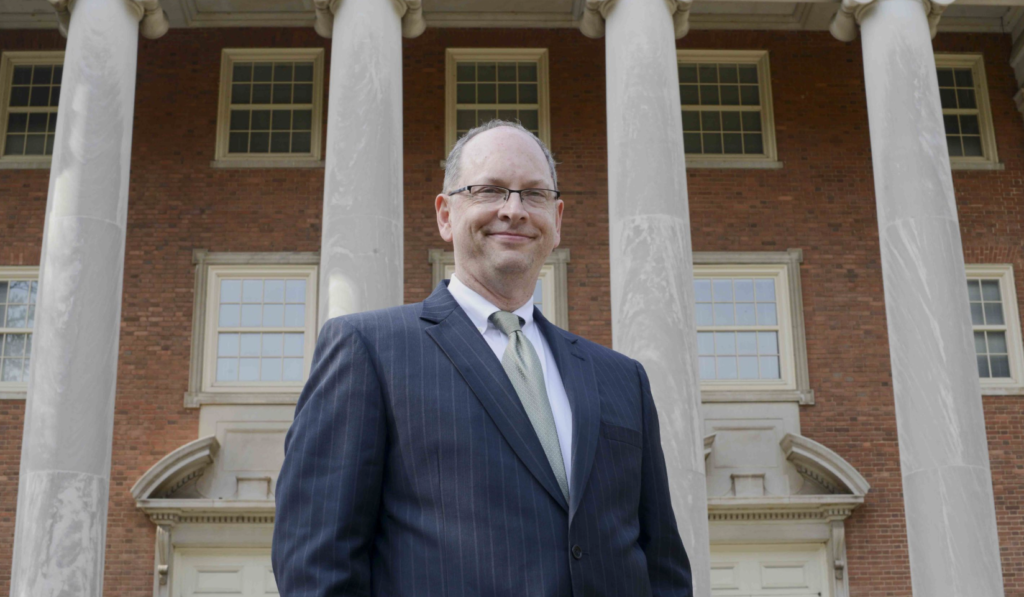
Six former Alabama Supreme Court justices, including three Republicans, signed a letter on Monday endorsing Democratic Judge Bob Vance in the race for chief justice. The former justices, including two former chief justices, urged voters to pick Vance over Republican Associate Justice Tom Parker in the Nov. 6 election. Parker is a current member of the court. The former justices called Vance, a circuit judge in Jefferson County for the past 16 years, the most qualified for the position and said he would be a chief justice “of whom we could all be proud.” “He is clearly the most qualified candidate for this high office,” the letter read. “Bob also has judicial temperament and the legal acumen required to decide cases on their merit. He knows that politics has no place in legal decisions.” The three Republicans who signed the letter are former Chief Justice Drayton Nabers, former Associate Justice Tom Woodall and former Acting Chief Justice Gorman Houston. The Democrats signing the letter are former Chief Justice Sue Bell Cobb and former associate justices John England and Mark Kennedy. The Parker campaign did not immediately respond to the endorsement letter. Vance received a similar endorsement in 2012 when he unsuccessfully ran for chief justice against Republican Roy Moore, for whom Parker once worked. Moore was twice stripped of chief justice duties after an ethics panel said he defied, or urged defiance of, federal court orders regarding same-sex marriage and the display of the Ten Commandments. In a campaign ad, Vance has contended Parker will be “another Roy Moore” if elected to head the state court system. Parker was elected to the Supreme Court in 2004. He won the GOP nomination this year after defeating Chief Justice Lyn Stuart with a campaign that appealed to social conservatives and emphasized his hope of one day overturning U.S. Supreme Court decisions such as the one that legalized abortion. Republished with permission from the Associated Press.
Bob Vance ad says Tom Parker will be ‘another Roy Moore’
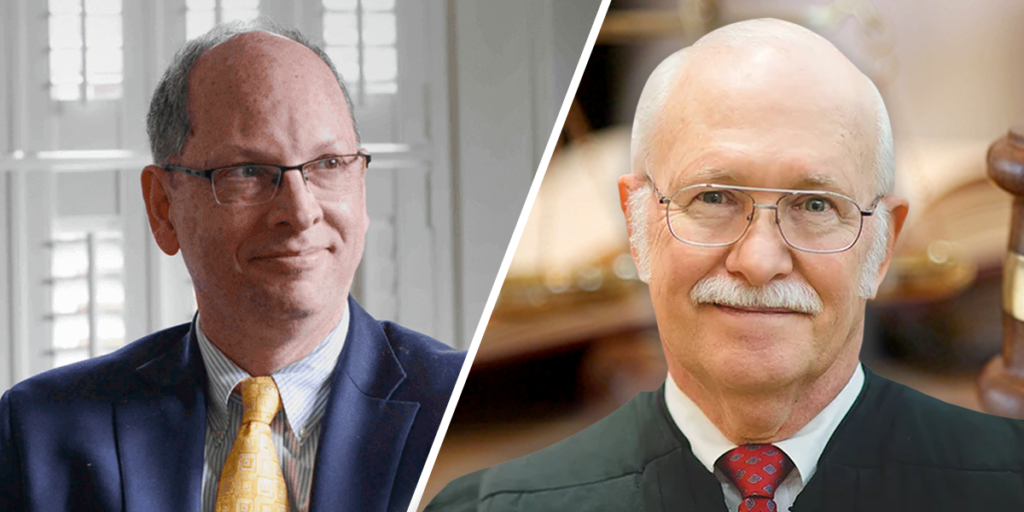
Alabama chief justice candidate Judge Bob Vance has launched an ad saying Justice Tom Parker will be “another Roy Moore” if elected to head the state court system. The ad centers on Parker’s longtime association with Moore and asserts that Parker will cause the “same chaos and controversy” as Moore if elected to head the state judicial system. A discipline panel twice stripped Moore of chief justice duties for misconduct after finding that he directly defied, or encouraged defiance of, federal court orders regarding same-sex marriage and the public display of the Ten Commandments. The ad has a quote of Parker saying how he would “relish” being compared to Moore and notes the two ruled similarly in the so-called birther case that questioned Barack Obama’s citizenship. “Voters in Alabama need to thoroughly know and recognize the choices they have in this race for chief justice. And certainly the background, the philosophy of each of the candidates, my opponent and myself, are something that the voters should look at in making an informed decision on Nov. 6,” Vance said Thursday. https://youtu.be/KAoK5jc3HKc Vance said it is clear that Parker has the same “activist world view” as Moore. In a statement issued through his campaign, Parker said the ad won’t, “fool Alabama voters in November.” “This is typical of the lying left wing extremists that have attacked me throughout my career,” Parker said. During Moore’s first term in office, Parker served as deputy administrative director of courts. He also served as Moore’s spokesman during fights over a Ten Commandments monument Moore erected in the state Supreme Court building. After Moore was ousted as chief justice in 2003, Parker was elected as an associate justice the next year. The 2018 chief justice race has undertones of a rematch. With support from moderate Republicans, Vance, a Democrat, came within a few percentage points of defeating Moore in the 2012 race for chief justice. Parker is a graduate of Dartmouth College and Vanderbilt University law school. Before joining the court, he has also served as an assistant attorney general and director of a conservative think tank tied to James Dobson’s Focus on the Family. Parker has said he sees Alabama’s courts as a key battleground to provide U.S. Supreme Court cases and “reverse some of those horrible decisions of the liberal majority from the past that have no constitutional foundation whatsoever.” Vance is a graduate of Princeton University and the University of Virginia law school. He serves as circuit judge in Jefferson County and has been elected three times since his appointment in Jefferson County in 2002. Republished with permission from the Associated Press.
Democrat Bob Vance outraising GOP opponent Tom Parker in Alabama chief justice race

In the race for Alabama chief justice, Democratic nominee Bob Vance is attracting more donors than Republican Tom Parker. Campaign finance reports filed recently show that Vance raised $200,000 for his campaign last month. Parker reported raising less than $4,000. Vance has an available campaign balance of $420,197 while Parker has $17,500. The race pits Parker, a member of the court since 2005 and a past adviser to former chief justice Roy Moore, against Vance, a Jefferson County judge. Finance reports show that two former Republican Supreme Court members, former Chief Justice Drayton Nabers and former Justice Thomas Woodall, donated to Vance’s campaign. Parker won the GOP primary over incumbent Chief Justice Lyn Stuart, who had a financial advantage in the race. Republished with permission form the Associated Press.
Five things you need to know about Bob Vance
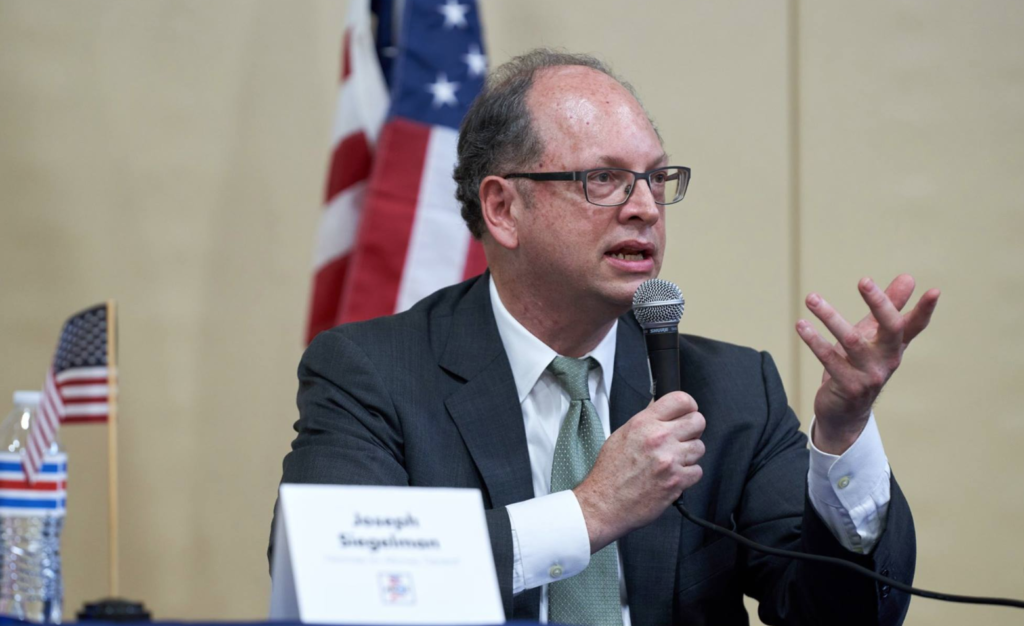
Now that the runoff elections are over, voters are turning their attention to the November General Election less than 90 days away. In the race for Chief Justice, Democratic nominee Judge Bob Vance ran without opposition in the June 5 primary. Now he moves to the General Election, facing Republican nominee Associate Justice Tom Parker. With that in mind, here are the five things you need to know about Bob Vance: 1. Worked as a lawyer for 16 years before becoming a judge Vance attended the University of Virginia School of Law, returning to Birmingham in 1986 to join the law firm of Johnston Barton Proctor Swedlaw & Naff. There, he focused his practice on several forms of litigation, including commercial and class action defense and employment cases, according to his campaign website. 2. He’s been a Circuit Judge since 2002 Vance was appointed to fill a vacancy in the Jefferson County Circuit Court in 2002 – and it stuck. 3. He ran for re-election in 2004, 2010 and 2016 — without opposition. Since his appointment in 2002, Vance has sought re-election to the seat three times, running without opposition. As a Circuit Judge, Vance has presided over numerous civil actions cases including: medical malpractice, automobile accident disputes, and workers’ compensation claims. 4. He’s run for this seat before In 2012, Vance entered what he knew was going to be an uphill battle for the Chief Justice seat, running against former Chief Justice Roy Moore. Although he knew the fight to the top would be tough, Vance came within 4 points of beating Moore. “We have gotten our message out effectively. We have competed against a very well-known opponent in a very red state, and we have fought down to the wire, and I am proud of our efforts in that regard,” Vance told AL.com. 5. He’s the son of Robert S. Vance, former chairman for the Alabama Democratic Party Robert S. Vance was the Chairman for the Alabama Democratic Party in the mid 1960’s. “He was very much a supporter of the Civil Rights Movement,” Bob Vance told AL.com. “He got involved in politics and eventually he was elected as chair of the Alabama Democratic Party, I believe in 1966.” In 1989, Robert Vance received a package, he brought it inside, and placed it on the table in front of his wife. As he opened the package a pipe-bomb exploded across the kitchen, killing Vance, and severely injuring his wife. “At first I was angry. I was angry and frustrated,” Vance continued. “And of course for a while I had those questions. Who did this, Why did he do it?” In 1991 Walter Leroy Moody was convicted of killing Vance, Moody himself was executed by the state of Alabama earlier this year.
Alabama AFL-CIO backs Judge Bob Vance for Chief Justice

The AlabamaAmerican Federation of Labor and Congress of Industrial Organizations (AFL-CIO) — a pro-labor union group that advocates for social and economic justice and working to vanquish oppression and make Alabama communities better for all people—regardless of race, color, gender, religion, age, sexual orientation, or ethnic or national origin — endorsed Judge Bob Vance, Democratic candidate for Chief Justice of the Alabama Supreme Court, for the November 6 general election this week. Vance spoke at the AFL-CIO Candidate Forum in Montgomery, Ala. on Thursday, August 2 about the issues facing the Alabama court system and the need for better funding to address these challenges. He also stressed the need for the courts to serve all Alabamians, regardless of income, race, or religion, and he pledged to stand above political rancor and divisiveness. Vance said he is honored to receive Alabama AFL-CIO’s endorsement. “The advocacy the organization provides on behalf of working families across our state is of the utmost importance,” Vance said.
Five things you need to know about Tom Parker
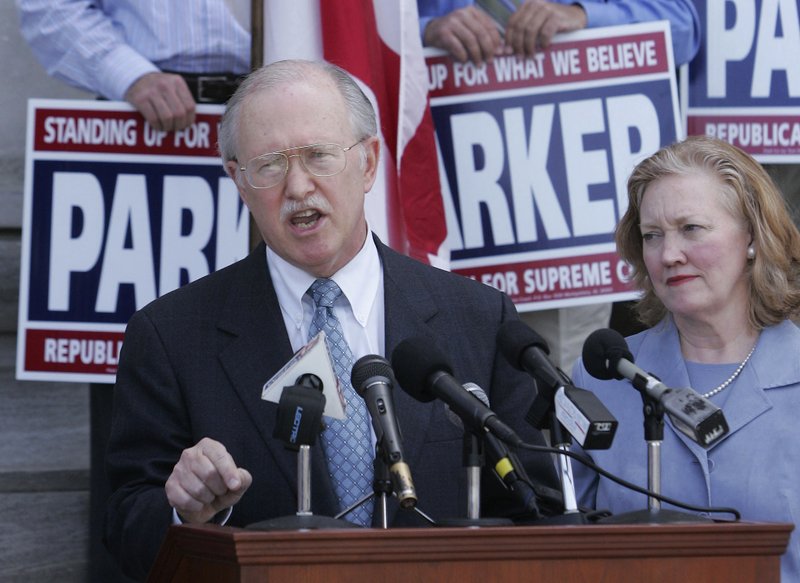
Now that the runoff elections are over, voters are turning their attention to the November General Election only 90 days away. Associate Justice Tom Parker beat out former chief justice Lyn Stuart in the June 5 primary election with almost 52 percent of the vote. Now he moves to the General Election, facing Democratic nominee Judge Bob Vance. With that in mind, here are the five things you need to know about Tom Parker: 1. He attended some of most prestigious schools in the country, and traveled to Brazil to study. Parker attended Dartmouth College in New Hampshire, and received his J.D. from Vanderbilt University school of law in Tennessee. According to his campaign bio, he was also a Rotary International Fellowship recipient and attended the University of Sao Paulo School of Law, in Sao Paulo, Brazil, where he was the first foreign student in Brazil’s most prestigious law school. 2. He’s held numerous positions in different courts across the state Parker has most recently served as Alabama’s Associate Justice, a position he’s held since 2004; but has also held numerous positions across the state including: Deputy Administrative Director of Courts, General Counsel for the Alabama court system, Director of the Alabama Judicial College, and Legal Adviser to the Chief Justice under Roy Moore. 3. He founded the Alabama Family Alliance, now the Alabama Policy Institute The Alabama Family Alliance, now the Alabama Policy Institute, was founded by Parker in 1989; he also served as the think tanks first Executive Director. “The Alabama Policy Institute is an independent, nonpartisan, nonprofit research and educational organization dedicated to strengthening free enterprise, defending limited government, and championing strong families,” API’s mission statement reads. 4. He served as an Assistant Attorney General under Jeff Sessions and Bill Pryor. According to his bio on the Alabama Judicial System’s website, Parker served as an assistant Attorney General under both Jeff Sessions and Bill Pryor. “As an Assistant Attorney General, he handled death penalty cases, criminal appeals, and constitutional litigation,” the bio reads. “He has extensive experience in writing appellate briefs and with oral arguments before the Supreme Court and the Court of Criminal Appeals.” 5. He is a longtime friend and ally of former Alabama Chief Justice Roy Moore Parker served under Moore as a Legal Adviser, and has been described by some as “Moore- light.” “He hasn’t been directly involved in Parker’s campaign. But neither has Parker sought to put any distance between him and Moore,” the Associated Press reported. “Parker contends Moore was wrongfully suspended in 2016, after an ethics panel ruled he was urging probate judges to defy the Supreme Court’s legalization of same-sex marriage. He says Moore was treated unfairly because of his Ten Commandments fight.”
Bob Vance holds major financial lead over opponent Tom Parker

According to monthly campaign finance reports filed with the Secretary of State’s office this week, Alabama Chief Justice Democratic candidate Judge Bob Vance is holding a major financial lead over his Republican opponent Associate Justice Tom Parker. Parker beat out former chief justice Lyn Stuart in the June 5 primary election with almost 52 percent of the vote. Vance had no primary opponent. According to the campaign filings, Parker ended the month of July with $13,753 in his account, while Vance ended the month with $239,200. Over the course of the month Parker raised just $2030, to Vance’s $93,080. “I think what’s pleased me most is that our numbers come from a large number of individual contributors,” Vance told AL.com. “I think we’re over 1,600 different contributors now. And the overwhelming majority of that is individual contributions. So that’s very heartening to me and it shows we’re getting a lot of support in the campaign.” Parker claimed he was not worried about the difference in funds; “I have had a continual experience of being able to use my money conservatively in my campaigns to win against candidates who have out raised me or outspent me multiple times over,” Parker told AL.com. But according to the Associated Press, the race has undertones of a rematch. Parker, a longtime ally of former Chief Justice Roy Moore – and Vance; who’s strong showing against Moore in the 2012 race for chief justice helped inspire U.S. Sen. Doug Jones last year in his defeat of Moore for the seat vacated by Attorney General Jeff Sessions. If elected, Vance would become the only Democrat on the Alabama Supreme Court. Read the full campaign finance reports below: Tom Parker Monthly Campaign Filings – July Bob Vance Monthly Campaign Filings – July
Tom Parker, longtime Roy Moore ally seeks Alabama chief justice job

Alabama’s Roy Moore fell short in his quest to become a U.S. senator, but voters this November could install one of his longtime allies as the state’s chief justice. Associate Justice Tom Parker says in a campaign ad that he won’t “sit back while liberals destroy our law and liberty.” Like Moore, he sees Alabama’s courts as a key battleground for overturning U.S. Supreme Court decisions that legalized abortion and same-sex marriage. “President Trump is just one conservative appointment away from giving us a conservative majority on the U.S. Supreme Court and they are going to need cases that they can use to reverse some of those horrible decisions of the liberal majority from the past that have no constitutional foundation whatsoever,” Parker told The Associated Press in an interview. Parker’s rallying cries to social conservatives propelled his primary win over a rival he dismissed as too “moderate:” Chief Justice Lyn Stuart, a better-funded incumbent who had taken over chief justice duties after Moore was suspended from the bench for a second time. Now he faces Bob Vance, a county circuit judge who would become the only Democrat on the Alabama Supreme Court. The race has undertones of a rematch. It was Vance’s strong showing against Moore in the 2012 race for chief justice — he lost by just 62,000 votes with support from moderate Republicans — that helped inspire U.S. Sen. Doug Jones last year in his defeat of Moore for the seat vacated by Attorney General Jeff Sessions. After years of upheaval — no chief justice has completed the six-year term since 2001 — both Parker and Vance emphasize the need to address systemic funding and staffing shortages. Parker says he would draw on his lobbying experience to secure funding. Vance said judges are “grappling every day” with defendants plagued by addiction and mental health issues. Vance, 57, a graduate of Princeton University and the University of Virginia law school, has been elected three times since his appointment in Jefferson County in 2002. He says Moore was a “divisive” justice, and he fears more of the same if Parker takes charge. “The chief justice really should stand there for everyone, because the courts should be there for everyone,” Vance told the AP. Vance says personal ideologies have no place in the judiciary. He cites his father — federal appellate Judge Robert Smith Vance Sr., who was assassinated with a mail bomb in 1989 — who said his religious opposition to the death penalty couldn’t influence his legal decisions. “He emphasized to me that if you do your job as a judge, and do it well, you’ve got to put aside your personal beliefs sometimes and just stick with what the law tells you to do,” Vance said. Parker, 66, graduated from Dartmouth College and Vanderbilt University law school, then worked as an assistant attorney general and director of a conservative think tank tied to James Dobson’s Focus on the Family. Moore hired him as deputy administrative director of courts, and he served as Moore’s spokesman during fights over a Ten Commandments monument Moore erected in the state Supreme Court building. Those court fights ended in 2003 with Moore’s first ouster from the bench. Parker was elected as justice the next year, and Moore was re-elected chief justice in 2012. Bill Stewart, a political scientist and long-time observer of state politics, said Parker could be viewed as “Moore- light.” He hasn’t been directly involved in Parker’s campaign. But neither has Parker sought to put any distance between him and Moore. Parker contends Moore was wrongfully suspended in 2016, after an ethics panel ruled he was urging probate judges to defy the Supreme Court’s legalization of same-sex marriage. He says Moore was treated unfairly because of his Ten Commandments fight. Moore remains embroiled in defamation lawsuits over the allegations of sexual misconduct with teens decades ago that doomed his Senate race. In 2014, they were the lone voices against a 7-2 ruling denying a “birther conspiracy” effort that had sought to keep President Barack Obama’s name off Alabama’s 2012 ballot. Parker wrote that the state had “received notice sufficient to raise a duty to investigate” Obama’s qualifications. Parker says now that he wasn’t commenting on the “truth” of the accusation. But Parker is not just Moore’s judicial acolyte. He has now been on the state Supreme Court twice as long as his former boss. And while Moore was twice ousted for violating judicial ethics, Parker cites his defeat of an ethics complaint as a victory for free speech. The Southern Poverty Law Center had complained about comments Parker made on a Christian radio show criticizing the U.S. Supreme Court’s gay marriage ruling. The same group had criticized him a decade earlier for posing with rebel battle flags alongside white extremists at the funeral of a Confederate widow; Parker said at the time that he had only just met the men, and that the criticism from a group like the SPLC showed he “must be doing the right things.” The complaint about his radio comments was dismissed, but Parker kept fighting until the Judicial Inquiry Commission agreed not to enforce the rule against off-the-bench comments unless they impact the fairness of impending proceedings. A Parker campaign ad says he’s “unafraid to stand up to bullies like the SPLC in defense of our Judeo-Christian heritage.” He told the AP that the victory allows judges to speak their minds and voters to learn the positions of “the judicial candidates that they are voting on.” Republished with the permission of the Associated Press.
Chief Justice Lyn Stuart picks up major endorsements in primary

Six current and former Alabama Supreme Court justices have endorsed Alabama Chief Justice Lyn Stuart in a Republican primary. The current and former justices on Thursday announced their support for Stuart who faces Associate Justice Tom Parker in the June 5 GOP primary for chief justice. Justice Mike Bolin, Justice Jim Main, retired Justice Gorman Houston, retired Justice Patti Smith, retired Justice Champ Lyons, and retired Justice Bernard Harwood said they were supporting Stuart. The GOP primary pits Parker, a longtime ally of former Alabama Chief Justice Roy Moore, against Stuart, who took over Moore’s duties when Moore was suspended from the bench. Alabama Gov. Kay Ivey later appointed Stuart as Moore’s replacement. The winner of the GOP primary will face Democrat Bob Vance in November. Reprinted with permission of the Associated Press.
Jefferson County just elected 9 black women to become judges
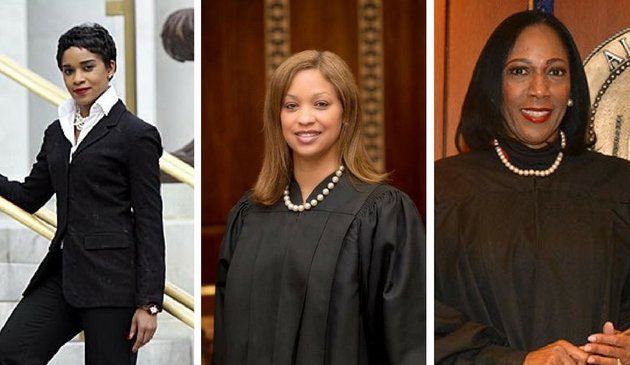
After the polls closed Tuesday, Jefferson County voters had placed nine black women into judgeships on their circuit court. The majority Democratic county voted in Javan Patton, Debra Bennett Winston, Shera Craig Grant, Nakita “Niki” Perryman Blocton, Tamara Harris Johnson, Elisabeth French, Agnes Chappell, and Brendette Brown Green, all of whom will be sworn in in January. In addition to those nine judges, voters in the left-leaning county also elected Democrats Lauren Petro, Clyde Jones, David Hobdy, Bob Vance, Stephen Wallace, and Reginald Jeter. French, who has served on the Jefferson County Circuit Court since 2010, told The Birmingham Times her hard work and experience helped her win re-election to her seat. “I think the people don’t necessarily just support you just because of your race and gender. I think voters expect more than that,” she said. “They look at our qualifications and make a decision about who they can trust with the leadership position.” Democrats won all 14 seats up for election to the Jefferson County Circuit Court.

